Dear friends,
The eighteenth-century philosopher Immanuel Kant once coined the term “disinterestedness.” Among his writings on aesthetics, Kant contemplated what it meant to appreciate something that we find to be beautiful. For Kant, when we not only pass a judgment on something but truly appreciate something’s or someone’s beauty, we find ourselves being disinterested. Not uninterested, as in not having any desire or curiosity about something. But dis-interested. In other words, you have an interest, but it is somewhat disassociated from one’s individualistic desire, or, put another way, you are interested in something but not with a fixed agenda that you seek to fulfil, particularly an agenda you had prior to encountering the person or thing you find beautiful. You simply appreciate or perceive beauty in someone or something for the sake of it, for the sake of them. You like them for who they are, not what you would prefer them to be.
Immanuel Kant (1724-1804). Portrait painted c1790.
I have often thought that the more penitential and reflective seasons in the church’s year help us with precisely this commonly shared conundrum. What does it mean to like or even love someone or something purely for who or what they are? Of course, for many of us, we may already find ourselves in relationships or circumstances where we know the answer to this. Nevertheless, I would hazard a guess that there might still be some areas in our lives where this notion goes unchecked. That’s not to sound judgmental or presumptuous, but simply to say that there are always things in our lives which are unfinished; things which we might want to control, or even let go of, yet where the letting go is itself another means by which we try to control something.
In many respects, this question brings us to Mary. At this time of year, and on the Fourth Sunday of Advent specifically, we are invited to contemplate who Mary is, and the part she plays in the Nativity of Our Lord. At first, this may seem obvious, but a closer inspection of our readings this coming Sunday provokes a particular kind of wondering. As we will hear on Sunday, Mary is someone who we know very little about, if anything. And while some traditions within the church have deeply held beliefs around her early life, her perfections (or imperfections), and the circumstances of her life beyond the pages of scripture, still she is someone who in so many ways captures the essence of what it means to simply be present to God. Regardless of history, circumstance, or desire, Mary appears in the story, she is called by God to do something, and she follows. She is indeed a disciple, and long before others.
This openness to God’s call and how we might embrace this rests at the heart of our worship, and not only in Advent. I am overjoyed at the prospect of gathering with you all this Sunday, and excited to see where our journey leads.
With every prayer and blessing,
Ed.
The Rev. Edward Thornley
Rector of The Episcopal Parish of St. John the Evangelist













